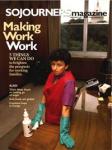Forgiveness may be the most difficult and least-understood challenge every human being must face. It shapes how we see ourselves, the members of our families, our community—even how we relate nation to nation.
Throughout the ages the major faith traditions have always valued forgiveness. From the Old Testament story of Joseph forgiving his brothers for selling him into slavery to Jesus asking God to forgive those who crucified him—forgiveness is the expectation but too rarely the reality.
More recently the field of health science has begun to recognize the value of forgiveness. Research studies are documenting how holding onto grudges can be harmful to a person’s health and that letting go of haunting memories of transgressions can lead to lower blood pressure, reduced heart rate, and ultimately a healthier and happier life.
The Power of Forgiveness is a new documentary film for public television that explores forgiveness through personal stories as it looks at the intensity of anger and grief that human nature is heir to. It combines profiles of the most dramatic transgressions imaginable with those that seem more commonplace and thereby more familiar.
The film examines the important role of community as the Amish responded with forgiveness to last fall’s schoolhouse shootings in Lancaster County, Pennsylvania. It discusses how efforts to build a Garden of Forgiveness at the site of Ground Zero have met with steep resistance as America wrestles with its ongoing response to the events of 9/11. Nobel Peace Prize Laureate and Holocaust survivor Elie Wiesel shares stories about forgiveness in the Jewish tradition and his own struggle to forgive the perpetrators of the Holocaust.
Also included is a story about a new forgiveness curriculum for schools in Belfast, Northern Ireland, as a way to end decades of violence, a profile of Buddhist teacher Thich Nhat Hanh, and reflections from Sister Helen Prejean (Dead Man Walking), Rev. James Forbes, Thomas Moore (Care of the Soul), and others.
Martin Doblmeier, president and founder of Journey Films, is producer of The Power of Forgiveness.

Got something to say about what you're reading? We value your feedback!